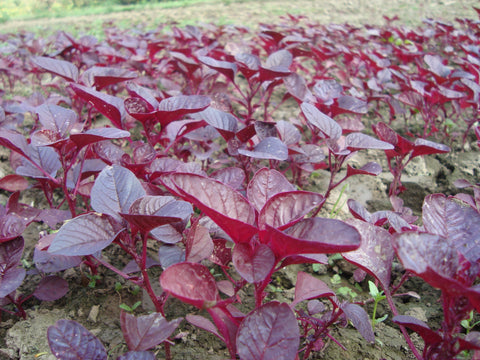How L-Arginine Nitric Oxide Works
Increasing nitric oxide with L-arginine-rich foods
L-arginine nitric oxide boosting is vital to overall health. There are many ways to increase nitric oxide production. L-arginine is one mode for improving the levels of nitric oxide in our bodies. Through what is called Nitric Oxide Synthases, various enzymes catalyze the production of nitric oxide from the amino acid L-arginine. Here’s what you need to know about supporting your health with dietary L-arginine.
L-arginine is a conditionally essential amino acid
L-arginine is a conditionally essential amino acid meaning there are times when it is essential and times when it is non-essential, depending on certain conditions happening in the body.
When L-arginine is a non-essential amino acid
In healthy, uninjured adults, L-arginine is considered a non-essential amino acid. That means that it is being produced and is bioavailable for use to convert into nitric oxide. It also produces key proteins and other molecules like creatine, glutamate, ornithine, polyamines, agmatine, proline, dimethylarginine, and urea. While L-arginine levels in healthy adults might be sufficient enough to be classified as “non-essential” it is ideal to add to L-arginine levels through diet.
When L-arginine is an essential amino acid
In young organisms, L-arginine is considered essential. Breast-fed infants receive about 45 mg/kg/day of arginine from human milk which is vital to their growth and development.
In adults, L-arginine becomes an essential amino acid when bioavailability drops, meaning we aren’t producing enough L-arginine endogenously. The key factors for a drop in L-arginine include:
- Trauma
- Physical injury
- Burn injury
- Severe illness
- Stress
- Endothelial dysfunction
Benefits of L-arginine nitric oxide boosting
L-arginine shares many of the same benefits from the mighty molecule it produces - nitric oxide. Here are some of those benefits:
- Increases nitric oxide
- Boosts energy
- Supports kidneys
- Supports wound healing
- Supports the immune system
- Balances hormones
- Improves endothelial health
- Building lean muscle
Is L-arginine naturally produced in the body?
Yes, a healthy individual naturally produces L-arginine. However, eating foods high in L-arginine is always a good idea to help increase L-arginine nitric oxide levels.
How long does it take L-arginine to work?
Research shows that it only takes 30 minutes to see vasodilation occur when the subjects received 30g of L-arginine. According to a study published in the British Journal of clinical pharmacology, L-arginine has a half-life of about 1-2 hours in various tissues and is absorbed within the first 24 hours of ingestion.
L-arginine nitric oxide boosting is an ongoing effort. While there is the ability to boost levels at particular times for the desired outcome, maintaining a diet rich in L-arginine is again the best mode. You can learn more by reading the article: When to Take Nitric Oxide.
Should you take L-arginine when you’re sick?
Yes, increasing intake of foods rich in L-arginine and L-citrulline is a good idea anytime the body is experiencing illness or injury. This is true for internal as well as external physical difficulties such as wounds. The ultimate strategy to defend against ailments and support wound healing is to practice continuous immune functions support. This can be achieved, in part, by eating a diet high in L-arginine and making sure L-arginine-rich foods are a part of every morning to give the body a jolt of nitric oxide. Nitric oxide from L-arginine plays a direct role in activating and supporting the immune systems. Nitric oxide is a neurotransmitter that helps signal immune fighting cells to go where they need to go and fight viruses and bacteria detected in the body. L-arginine helps support the immune system by:
- Transporting immune cells
- Increasing oxygen to immune cells
- Increasing blood flow to help immune cells travel faster
You can learn by clicking: Boosting your Immunity with Nitric Oxide, Does it Work?
What is the best source of L-arginine?
L-arginine is produced in the body, ingested through high L-arginine and L-citrulline foods, and with various supplements that are synthesized in the manufacturing process. When produced synthetically, the primary method is via fermentation and hydrolysis of inexpensive protein sources like gelatin.
When considering the ultimate source of L-arginine for ongoing nitric oxide support, foods are better than synthesized supplements. This is because foods can be vetted more easily and a cleaner boost can be achieved.
Best L-arginine dosage for increasing nitric oxide
The amount of L-arginine to take every day depends on the reason you’re taking it. For maintaining overall health, the average intake of L-arginine is about 2.1 grams per day, up to 24g. This number is based on a study that saw endothelial health improvements over the course of 6 months.
On the lower end, 2.1 grams of arginine is roughly 1 cup of chopped walnuts. But walnuts aren’t the only food with high L-arginine levels. Here’s a list of foods you can leverage to increase L-arginine and boost nitric oxide.
Top vegan foods that contain L-arginine

Nuts and grains are key sources of plant-based L-arginine and include:
- Pumpkin seeds
- Walnuts
- Almonds
- Pine nuts
- Soybeans
- Raw Peanuts
- Chickpeas
- Seaweed
- Garlic
At the top of the L-arginine packed food list is almonds. As Dr. Louis Ignarro says, “The richest source of arginine on a weight basis is almonds.”
One excellent way to increase almond intake is with no oil added nut butters, like this pure Almond Butter made by Chef AJ.
Who should take L-arginine?
Anyone looking to boost nitric oxide levels and support overall health can get L-arginine nitric oxide from a balanced diet. Most plant-based L-arginine foods are also loaded with antioxidants, which offer additional benefits. Considerations can be made for additional intake of L-arginine foods in times of illness or injury. Living a nitric oxide lifestyle means knowing about and incorporating L-arginine for a daily boost.
Resources:
Tomlinson, C., Rafii, M., Sgro, M. et al. Arginine Is Synthesized From Proline, Not Glutamate, in Enterally Fed Human Preterm Neonates. Pediatr Res 69, 46–50 (2011). https://doi.org/10.1203/PDR.0b013e3181fc6ab7
Morris CR, Hamilton-Reeves J, Martindale RG, Sarav M, Ochoa Gautier JB. Acquired Amino Acid Deficiencies: A Focus on Arginine and Glutamine. Nutr Clin Pract. 2017 Apr;32(1_suppl):30S-47S. doi: 10.1177/0884533617691250. Epub 2017 Feb 1. PMID: 28388380. https://pubmed.ncbi.nlm.nih.gov/28388380/
Bode-Böger, S. M., Böger, R. H., Galland, A., Tsikas, D., & Frölich, J. C. (1998). L-arginine-induced vasodilation in healthy humans: pharmacokinetic-pharmacodynamic relationship. British journal of clinical pharmacology, 46(5), 489–497. https://doi.org/10.1046/j.1365-2125.1998.00803.x
Pahlavani, N., Jafari, M., Sadeghi, O., Rezaei, M., Rasad, H., Rahdar, H. A., & Entezari, M. H. (2014). L-arginine supplementation and risk factors of cardiovascular diseases in healthy men: a double-blind randomized clinical trial. F1000Research, 3, 306. https://doi.org/10.12688/f1000research.5877.2
USDA, Medline Plus - Arginine https://medlineplus.gov/druginfo/natural/875.html
Stuehr DJ. Enzymes of the L-arginine to nitric oxide pathway. J Nutr. 2004 Oct;134(10 Suppl):2748S-2751S; discussion 2765S-2767S. doi: 10.1093/jn/134.10.2748S. PMID: 15465779. https://pubmed.ncbi.nlm.nih.gov/15465779/
Wenjuan Shi Jobgen, Susan K. Fried, Wenjiang J. Fu, Cynthia J. Meininger, Guoyao Wu, Regulatory role for the arginine–nitric oxide pathway in metabolism of energy substrates, The Journal of Nutritional Biochemistry, Volume 17, Issue 9, 2006. https://www.sciencedirect.com/science/article/pii/S0955286305003189
Scibior D, Czeczot H. Arginina--metabolizm i funkcje w organizmie człowieka [Arginine--metabolism and functions in the human organism]. Postepy Hig Med Dosw (Online). 2004;58:321-32. Polish. PMID: 15459550. https://pubmed.ncbi.nlm.nih.gov/15459550/





Comments (0)
There are no comments for this article. Be the first one to leave a message!